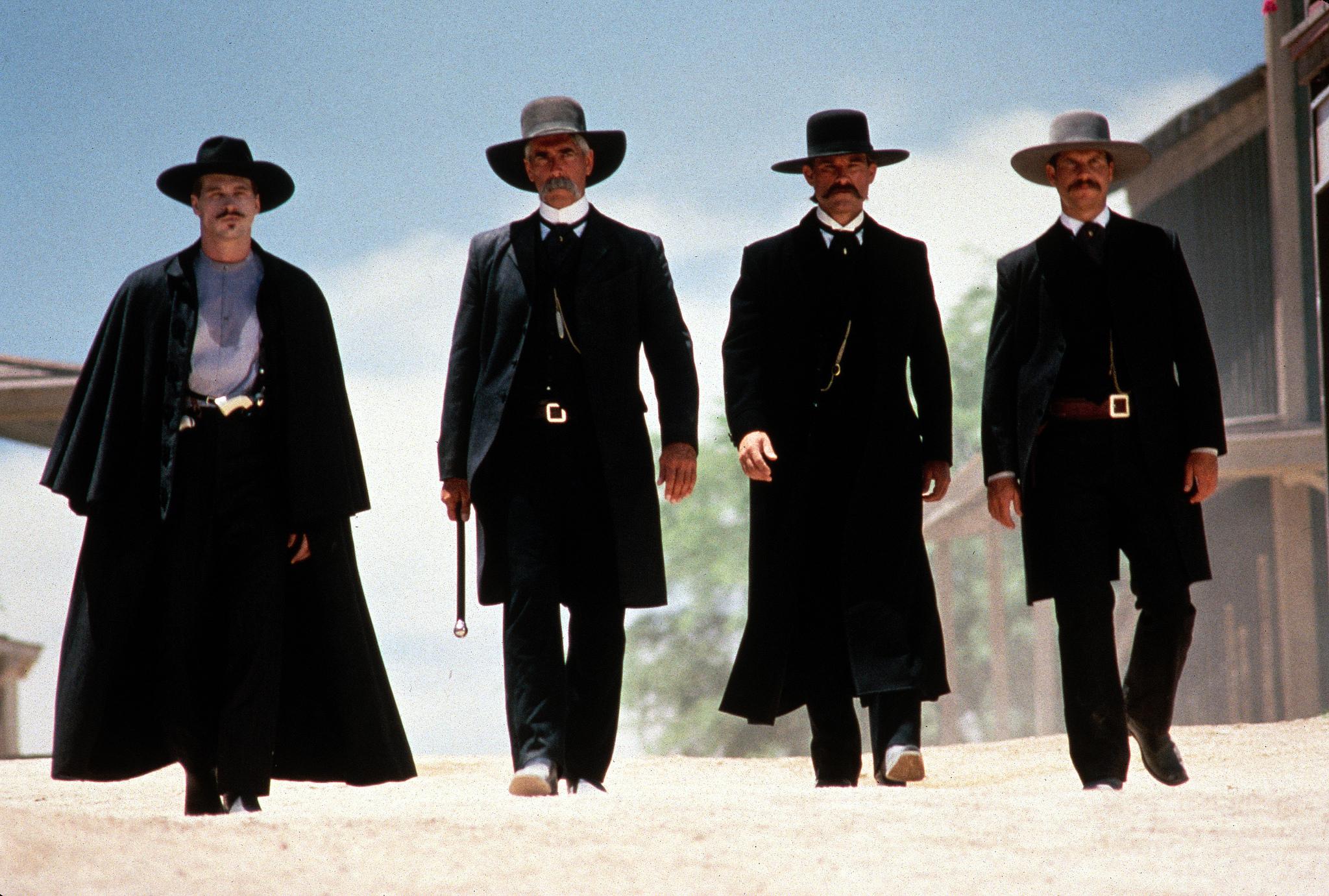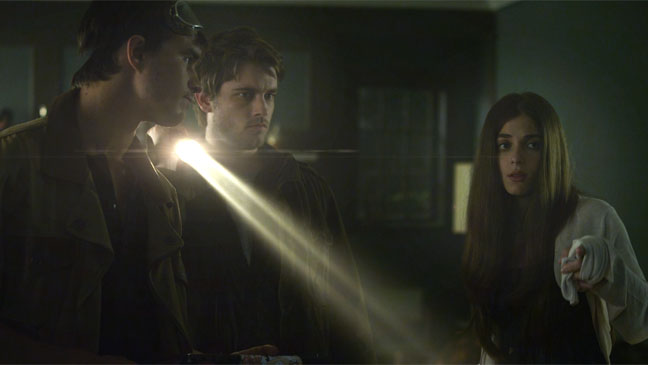Undertones: Volume 2
 In the 1940s the consumption of alcohol was predominantly glamorised on the silver screen. Starlets sipped sensuously on their g & t’s whilst detectives downed shots of whiskey before departing the office on a hot lead. If this was an accurate portrayal of the time, one has to ask how the hell anyone got anything done whilst being so heavily sauced. Despite the era’s predilection for depicting alcohol ingestion as a sophisticated way to spend one’s time, a film emerged from this period that actually dared to show the repercussions of excess binges with the bottle; Billy Wilder’s Oscar winning film, The Lost Weekend (1945).
In the 1940s the consumption of alcohol was predominantly glamorised on the silver screen. Starlets sipped sensuously on their g & t’s whilst detectives downed shots of whiskey before departing the office on a hot lead. If this was an accurate portrayal of the time, one has to ask how the hell anyone got anything done whilst being so heavily sauced. Despite the era’s predilection for depicting alcohol ingestion as a sophisticated way to spend one’s time, a film emerged from this period that actually dared to show the repercussions of excess binges with the bottle; Billy Wilder’s Oscar winning film, The Lost Weekend (1945).
Starring Ray Milland in the lead role as Don Birham, a recovering alcoholic writer, The Lost Weekend follows four chaotic days as Birham jumps back on the wagon. Apart from classic Wilder dialogue and beautiful cinematography that recalls that of the film noir genre of the period, The Lost Weekend also features an innovative score by Hungarian composer, Miklós Rózsa. Having previously contributed classic scores to films such as Disney’s Jungle Book (1942) and another Wilder masterpiece, Double Indemnity (1944), Rózsa was also enlisted by Alfred Hitchcock to write the score to his thriller Spellbound (1945). The musical material found in both Spellbound and The Lost Weekend is incredibly similar and given the close proximity of their release dates, one can only presume Rózsa may have been working on them simultaneously. Both films were considered “psychological thrillers” in that their plots revolved around a particular neuroses that their lead characters suffered from (amnesia brought about by a guilt complex in Spellbound and alcoholism in The Lost Weekend), consequently Rózsa may have used the same techniques in order to convey their debilitating mental states.
 What is most striking about Rózsa’s scoring of the two films is the use of the theremin, an instrument that has since become synonymous with the science fiction films of the 1950s. In both films he uses the wavering and ‘eerie’ tones of the instrument to reflect the two protagonists’ disturbed states of mind. In The Lost Weekend the theremin’s oscillations also seem to mimic Birham’s drunken stumbling as he searches for another hit of that sweet, sweet liquor.
What is most striking about Rózsa’s scoring of the two films is the use of the theremin, an instrument that has since become synonymous with the science fiction films of the 1950s. In both films he uses the wavering and ‘eerie’ tones of the instrument to reflect the two protagonists’ disturbed states of mind. In The Lost Weekend the theremin’s oscillations also seem to mimic Birham’s drunken stumbling as he searches for another hit of that sweet, sweet liquor.
In one of the most memorable of the film’s scenes, Birham recoils in horror over a Delirium tremens (DT) hallucination (yep, the guy is that much of a booze hound) involving a bat killing a mouse. Now let’s just ignore the fact that the rubbery bat appears to be attached by string to a fishing pole manoeuvred by some guy who was totally uninspired at the time and focus on the actual horror of the scene. Birham’s hallucination is genuinely disturbing in that it reflects the grim reality of extreme alcoholism and in the days before CGI and Jim Henson it must have been pretty damn frightening for the audience. Apart from Milland’s blood-curdling screams, what makes this scene truly disturbing is Rózsa’s score and its exploitation of the theremin’s timbre.
 Throughout the film, as film music writer Roy M Prendergast notes, the theremin is only used in scenes in which Birham’s mind turns to alcohol. Thus, apart from creating a sense of unease in the listener due to its unusual sound (particularly to the ears of 1945 cinemagoers), the use of the theremin at particular moments in the film (e.g. when Birham packs a suitcase and realises he has omitted his liquor) serves as a reminder to the audience of Birham’s preoccupation with alcohol.
Throughout the film, as film music writer Roy M Prendergast notes, the theremin is only used in scenes in which Birham’s mind turns to alcohol. Thus, apart from creating a sense of unease in the listener due to its unusual sound (particularly to the ears of 1945 cinemagoers), the use of the theremin at particular moments in the film (e.g. when Birham packs a suitcase and realises he has omitted his liquor) serves as a reminder to the audience of Birham’s preoccupation with alcohol.
In his survey of the history of film music, Mervyn Cooke notes some interesting background information regarding Rózsa’s score for The Lost Weekend. Initially the fact that Rózsa had used the ‘wacky’ theremin in his score was met with disapproval from the film’s producers. Consequently, in a preview screening of the film a temporary music track that was ‘jazzy’ in style was used and falsely led the audience into thinking they were watching a comedy. Needless to say, folk walked out because comedy it ain’t – unless of course you think that crippling alcoholism is hilarious in which case it’s a total laugh riot. Given that the film went on to become critically acclaimed and cleaned up at the Academy Awards in 1946 (Oscars for Best Director – Billy Wilder, Best Actor – Ray Milland, Best Screenplay – Charles Brackett and Billy Wilder, and Best Picture), it’s obvious that in using Rózsa’s haunting score instead of employing the more fashionable jazz sound of the day, the producers had come to the right decision as to the choice of music. That year Rózsa was also nominated for an Oscar for The Lost Weekend but, as luck would have it, lost out to himself for his score to Spellbound.
Undertones is Clare Nina’s fortnightly guide to the world of film scores.
Clare Nina Norelli



